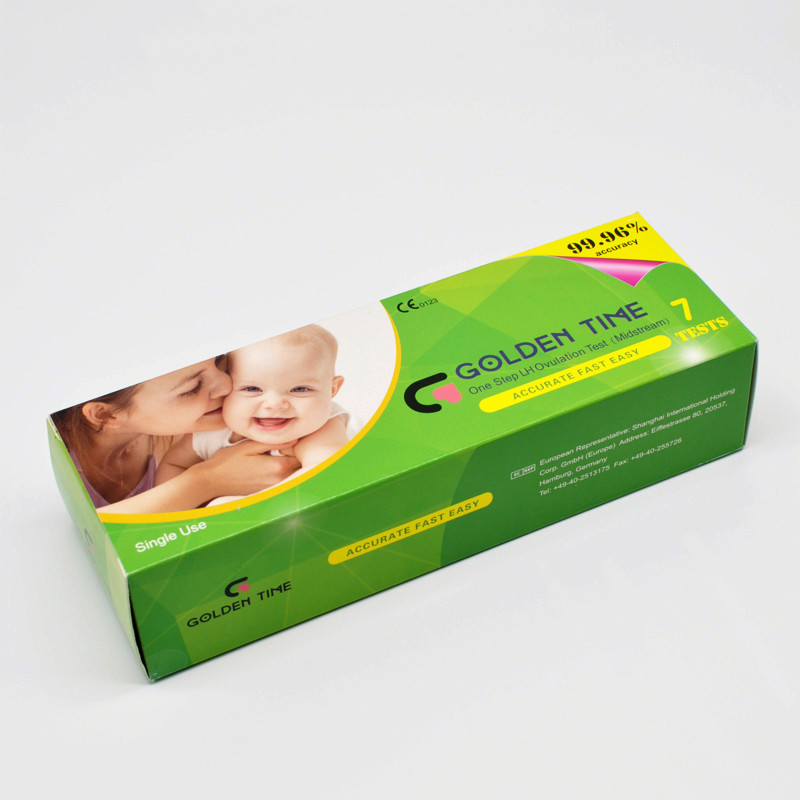Sep . 19, 2024 04:35 Back to list
buy ultra early pregnancy test manufacturers
Understanding Ultra Early Pregnancy Test Manufacturers
In recent years, the demand for ultra early pregnancy tests has surged, leading to the emergence of various manufacturers in this niche market. These tests are designed to detect pregnancy at the earliest stages, often as soon as six days before a missed period. This ability has made them popular among individuals eager to confirm pregnancy as quickly as possible.
The Science Behind Ultra Early Pregnancy Tests
Ultra early pregnancy tests are based on measuring human chorionic gonadotropin (hCG) levels in urine. hCG is a hormone produced shortly after a fertilized egg attaches to the uterine lining. It is typically detected around the time of a missed period, but ultra sensitive tests can identify lower levels of the hormone shortly after conception. Manufacturers use advanced technology to enhance the sensitivity of the tests, making it possible to achieve accurate results with just a few drops of urine.
Key Players in the Market
The ultra early pregnancy test market features a variety of manufacturers, ranging from established healthcare companies to emerging biotech firms. Companies like Clearblue, First Response, and EPT are widely recognized for their reliable products. Each manufacturer has its unique selling points, including features such as digital displays, rapid results, and ergonomic designs.
Clearblue, for instance, is renowned for its digital pregnancy tests that provide clear, easy-to-read results. First Response focuses on trust and reliability, offering tests that can detect hCG levels as low as 6.3 mIU/mL—one of the most sensitive tests available. Meanwhile, EPT has built its reputation on producing tests that are not only accurate but also affordable, catering to a broad demographic.
Innovation and Technology
buy ultra early pregnancy test manufacturers

The landscape of pregnancy tests is continually evolving, thanks to advancements in technology. Many manufacturers are investing in research and development to create more sensitive tests and improve user experience. Some of the innovations introduced in recent years include
1. Smart Pregnancy Tests These are connected devices that not only test for pregnancy but also sync with mobile applications, providing users with personalized insights and tracking options.
2. Sustainable Products As environmental concerns grow, some manufacturers are developing eco-friendly tests that use biodegradable materials, appealing to environmentally conscious consumers.
3. Combined Tests Some brands now offer tests that can detect both pregnancy and ovulation, providing more value to consumers trying to conceive.
Choosing the Right Test
When selecting an ultra early pregnancy test, consumers should consider several factors, including sensitivity, ease of use, cost, and brand reputation. Reading reviews and personal experiences can also aid in making an informed decision. It's important to follow the manufacturer's instructions for accurate results and to keep in mind that while ultra early tests are designed to be highly sensitive, factors like urine concentration and timing can affect the outcome.
Conclusion
The ultra early pregnancy test market is bustling with innovations and options, catering to the diverse needs of consumers. With established manufacturers and new players entering the scene, individuals can take advantage of advanced testing technology to gain clarity on their pregnancy status sooner than ever. As the industry continues to evolve, one can expect even more revolutionary products that will empower users on their pregnancy journeys.
-
Rapid Canine Corona Test: Fast & Accurate Results
NewsAug.06,2025
-
Rapid BZO Test Kit - Fast & Accurate Benzodiazepines Detection
NewsAug.04,2025
-
China Nylon Flocking Swabs - AI Enhanced Quality Collectors
NewsAug.03,2025
-
Highly Accurate hCG Pregnancy Test Strips - 5 Min Results
NewsAug.02,2025
-
Premium Empty ABS Plastic Cassettes: Durable & Lightweight Storage
NewsAug.01,2025
-
Accurate Cocaine (Coc) Rapid Test Kit | Fast & Reliable Detection
NewsJul.31,2025

